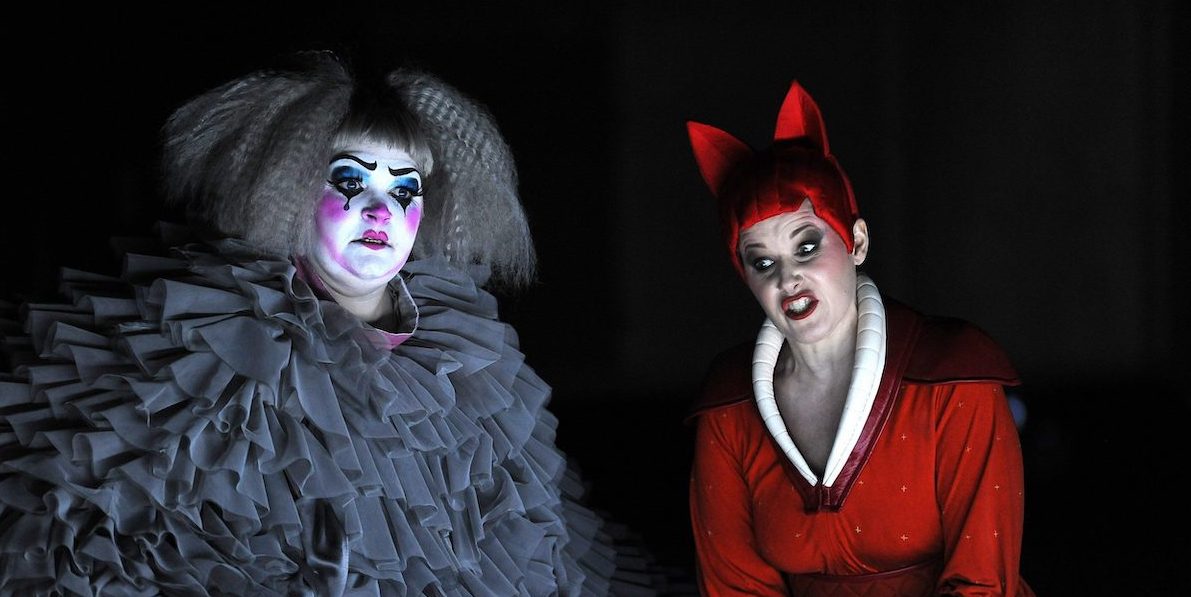Since its first performance, in 1924, Janáček’s The Cunning Little Vixen has enjoyed the kind of philosophical tug-of-war usually reserved for a much meatier fare; is it a tragedy? A comedy? A tribute to nature? A tribute to man? These questions, I’m sure you’ll agree, are relatively uninteresting, but Manton sidesteps them decisively with a cheery, light, colourful performance that contrasts an oddly political, modernised translation with a total absence of darkness.
The Cunning Little Vixen tells the story of, in truth, a not especially cunning young fox as she escapes from the forester who captured her as a pup, explores the forest, acquires a home, acquires a mate, and is shot. It would be wrong to blame Manton for the rather pedestrian plot, but it does bear noting for the prospective attendee that this is by far the lightest of Janáček’s operas, and has absolutely none of the intensity, or emotion, of well-trod classics like La Traviata.
The ENO is blessed with a remarkable stage, capable of stretching back like a wasteland, but it is disappointing to see it used here so little — the reliance on foreground seems like a missed opportunity, given the ragged ensemble texture of Janáček’s plot. What does shine, though, is a universally excellent performance by the hoard of children Manton has summoned up from local state schools; the Frog (actor unnamed) is especially magnificent, holding the entire audience in his thrall as he hopped regally towards his rightful spot in the centre of the stage. His return, in the final scene, was greeted with cheers — correctly so.
These visual gags, and the physical acting that accompanies them, are the highpoint in a production that, in truth, is sung with remarkable mediocrity. Matthews acts marvellously as the Vixen, conveying a real mischievousness, but sings as if distracted by lunch — and a similar fate befalls Clive Bayley, usually so much better, and capable of much, as he proved in 2019’s marvellous Orphée. The one real exception is the American baritone, Lester Lynch, who does as much as he can do as the Forester, but is hamstrung by constantly having to look drunk, mad, and confused.
On the definite bright side, though, is Martyn Brabbins, conducting a brilliantly talented orchestra, and managing to produce some of the cleanest, crispest music I’ve heard at the ENO. Of course, Janáček’s final outing is not especially complex, but that takes nothing away from what was, other than the Frog, easily the finest piece of the jigsaw, and the musical saving grace.
To return to the singing problem, I do confess myself still unsure how well opera works in the English language. There is something rather wrenching about lines like “What an awful racket, yelling and screaming” and, my historical bugbear, the liberal use of the word “Anyway”, which precedes an absurd amount of the lines, especially for poor Lester Lynch. Words like “feminist” cannot really have appeared in Janáček’s original, can they? I wish that some of the time spent inserting ‘modern themes’ into an opera about woodland animals had instead been spent on ensuring that the translated text was as beautiful, light-touch, and crafted as its Czech father.
Nonetheless, the general experience is a pleasant one, and I would think of Manton’s revival as a splendid introduction to opera for children, especially those who admire chickens but don’t have too much fondness for badgers. I am also freshly convinced that there is room for a splendid sequel, which I would be very glad to attend: The Splendid Hopping Frog. I have an actor already in mind..

